- Home
- Perry Rhodan
The Last Days of Atlantis Page 2
The Last Days of Atlantis Read online
Page 2
I noted that he was extraordinarily pressed to achieve the condition he required and I asked him several times to tell me what was agitating him so.
"Bell!" he exclaimed, trembling in his anxiety. "It's Bell! He was in the cell shower machine when the phase-distortion started. Something's happened to him. No, wait—don't think so hard. You're sending out interference impulses. That makes it hard for a teleporter to transfer you. Don't think of anything—tighten up your defense screen!"
To me it seemed as if this whole accursed world were coming apart. On the one hand, Rhodan fired off one of his heaviest guns, and on the other hand here was unquestionably his most capable mutant, trembling with fear for Reginald Bell.
I conquered my nervousness and strove to screen off my brain waves. Moments later I felt a quick, painful tug. Pucky and I had made our 'jump', as he blithely referred to the complicated process of building up a mass transfer field in the 5th dimension.
When I rematerialized I recognized the inner contours of the pillared Physiotron chamber. A tall, lean figure slowly approached me. In Rhodan's eyes was a frightening coldness. I had seen this look on his face once before when we had faced each other on a desolate world in mortal combat.
He came quite close before he stopped. "How good is your arithmetic, Admiral?" he asked. I think I've run out of numbers." He stepped to one side so that I could see the cell-activation converter.
Close to the color-marked ring of the safety zone stood a young officer with a stubble of rusty red hair and a smooth, unwrinkled face. I had to look carefully to be convinced that it was Reginald Bell, Something seemed to stick in my throat. I almost staggered as I walked toward the danger zone. The man with the water-blue eyes did not move.
I searched for the deep furrows that had been etched into Bell's forehead during the past few years. The first wrinkles of care of course had appeared long before after his first Moon landing, which he had made in the company of the expedition leader, Perry Rhodan. On the 14th of May 2042, Bell would complete his 104th year of life. At this moment it was May 5 of that year, so his birthday was only a few days away.
Some 62 years before today, he and Rhodan had both received their first biological cell shower on Wanderer. five days ago he had entered the Physiotron a second time in order to submit to the indispensable cell activation process.
I risked still another step before I stopped. This young man with the smooth, barely distinguished features—was this Reginald Bell, Rhodan's 2nd-in-command?
"Reginald, is it really you?" I asked falteringly
The full young lips hardly moved. His stocky, broad-shouldered physique revealed less fat around the hips than I had been accustomed to seeing.
"This is the way I was back in the 60s, more or less," he answered tonelessly, "when a certain Gen. Pounder sent me to the new Space Academy. At that time I was 27 years old."
A sense of horror welled up within me. Simultaneously I received a signal from my auxiliary brain, which had been activated thousands of years ago on Arkon. The message from its logic transmitter was short: " Beware—breakdown during the second cell shower. Regeneration can be retrogressive. He is becoming younger!"
This awareness was like a blow to the face. I struggled to hold on to my self-composure. My smile must have looked sickly, if anything, but Bell did not seem to notice it. I could sense that this energetic man had inwardly given up any hope of survival.
I turned to look at the others behind me. In addition to Rhodan, only the scientists and officers of the Drusus were in evidence. Dr. Arnulf Skjoldson, chief medical officer, stood next to Dr. Ali el Jagat, head of the mathematical department.
Jagat's thin, aquiline face remained expressionless as he handed me a sheet of synthetic material on which a line diagram had been drawn. Without preliminaries he plunged into his explanation. Which I could understand because I sensed that there was no time to lose. It would have been purposeless to try discussing all the whys and wherefores of Bell's life and destiny. So it was typical of Jagat to call out the facts as he saw them:
"This is the first evaluation, Admiral. At the present moment Bell is at a stage which represents the 32nd year of his life. Those pulse spikes show the beginning of the retrogression process. The flatter curves mark the time-lapse since the second activation. The chart is saying that an uninterrupted development of the process will bring him to a critical phase within about 60 hours. If we don't do anything to stop it, within three weeks he'll be a babbling baby."
The mental image of Bell as a flailing, kicking infant might have been amusing under less tragic circumstances but here there was no one who seemed to be amused in the slightest degree. The chart was the result of a test computer run and it didn't require a mathematician to determine when the critical point would arrive.
I looked searchingly at the doctor. Skjoldson made a helpless gesture with his hands. A mop of his straw-blond hair hung over his furrowed brow. "You have no solution, doctor?" I asked him.
"None! What has happened here with this equipment goes beyond my comprehension. I don't even understand the purely physical processes involved—and that goes for the biochemical changes as well. It is incredible to me that a maturely developed man should become younger. This goes against all the laws of Nature."
"Like everything else on this artificial planet," interjected Bell tonelessly. "OK, you can cut the chatter, men. No diapers for me. Before I get to that stage, count me out—curtains!"
His youthful face was grim. He looked at each of us, devoid of any hope. Finally his attention was focused upon a tall, lean figure back in the entrance hall. I followed his gaze.
We had given the biopositronic robot the name of Homunk, which was short for homunculus. He was the product of what had to be considered an exclusive and esoteric science. He could not have been constructed more perfectly without coming close to duplicating the work of the Creator.
Homunk's biosynthetic facial film exhibited a compulsory smile. Beneath the virtually living yet synthetic tissue of his bodily 'flesh' envelope operated a mechanism that had no counterpart in the known galaxy.
The fully positronic micro-laminar brain was more efficient than I had ever seen in the best of our own machines. In this highly complex computer brain there were more circuit elements packed into the space of a cubic centimeter than we could have stored effectively into a cubic yard and still get anywhere near the same performance. Its electronic speed was something like 80 million bits of information per second. How big the memory storage was we did not know. In any case, Homunk was something that one could designate as being perfect.
His builder-designer had fashioned him in the outward appearance of a human or an Arkonide. His speaking mechanism was a biological masterpiece. Using a positronic oscillator, it could convert electromagnetic control pulses into understandable and perfectly modulated words, with the help of its semi-organic vocal cords. Homunk was a walking miracle—but at present he seemed to be failing us miserably.
Rhodan beckoned to the robot. He approached with swinging, elastic strides. His stereotyped smile provoked me into making an unfriendly remark. "It appears to me that your great master has come to the end of his wits. Where is that creature and all of his roaring laughter now?"
Homunk came to a stop and his ersatz eyes looked at me. He called me "Sir", as he did everybody. "Since his escape from semispace he has not communicated, Sir. I am disquieted."
A cosmonaut officer from the Drusus laughed humorlessly at the idea of a robot being worried about anything. But then silence pervaded the large chamber.
At this moment I knew that the second catastrophe had just made its appearance. It had disappeared! The being in whom the mentalities of millions of disembodied intelligences were combined into a titanic psychic force seemed not to have survived the chaos of the return out of semispace. At the moment, we ourselves were practically the proprietors and rulers of the synthetic planet Wanderer.
Perry Rhodan only looked at me
. He had apparently asked his decisive questions before my arrival so now he left the initiative to me.
Inwardly I began to despair. People of my race do not perspire; however, I felt a dampness around my eyes. My logic sector remained stubbornly silent. Apparently even my auxiliary brain saw no practicable way out.
Since my silence persisted, Rhodan interjected his thoughts. "Homunk has suggested that we reconstruct the entire experiment—and repeat it. Some weeks ago Wanderer was trapped by an overlap of the Druuf timeplane. Owing to the forceful method of its escape, the planet landed in an unstable intermediate dimension. If we were to deliberately penetrate the time wall again and risk making an escape under the same conditions we would actually have to land in semispace. Circumstances permitting, Bell could then reenter the cell shower."
Rhodan's cryptic smile indicated to me that he did not consider the plan to be very promising.
I bluntly rejected the idea. "Impossible! How are you going to get the titanic mass of a celestial body like this through the warpfield?"
"With the powerful equipment available here we could generate a correspondingly large energy-lens to gate us through."
I made a negative gesture. It was senseless to even discuss it.
"Until something like that happens, I'm done for," interjected Bell calmly. "Atlan, do you have a better idea? I remember your work during and even before the breakout."
"He should enter the converter again and make an all out try to stop the process," said Lt.-Col. Sikerman.
I shook my head. No, that wasn't the answer, either. The problem lay in our lack of knowledge concerning the function of the Physiotron. While he was being charged, Bell had only been caught a short length of time in the distortion forces of the phase shift. We knew now that the existence of the planet in semispace had been a question of energy levels. Unquestionably the intermediate plane was related much more closely to the Druuf zone than with our own space-time continuum.
I only learned later that I had stood for more than an hour in a trance-like state in front of the perfect robot. The men of the Drusus continued their silence after I was awakened from my brooding by a painfully heavy pulse from my logic sector. I had found a temporary, solution but whether or not it would stand the test of application was another question.
"You've arrived at something," said Rhodan. "What can we do?"
I felt exhausted. The mathematical problems involved were getting too big for even an Arkonide brain. For the time being I could only come up with general information. As I tried to look about attentively I noticed that my eyesight seemed to fail me to some extent. Rhodan came close, his face showing concern.
"You're still exhausted from your last effort," he said softly. "Can you still concentrate? I have a certain conceptual grasp of what's going on. Let's wait to see what your dice have come up with. Maybe our opinions will coincide."
I smiled at him and asked myself why I had ever considered this man to be my enemy. On Hellgate I had almost killed him. The humans associated with Rhodan reminded me more and more of the old Arkonides under my command who fought and suffered in the Earthly solar system many thousands of years ago.
They had been wonderful friends and rugged soldiers, as worthy of affection as these Terranians were gradually becoming. Reginald Bell for example was the personification of self-control. For several minutes now he had started to defy his fate. I could read in his eyes that he had determined to show no sign of weakness. Of course he knew only too well that with a continuation of the retrogressive process he would lose his high-spirited courage.
A simple concentration or contraction of his cell structure or molecular combinations could not be involved here. Had this been so, we would probably have seen his body begin to shrink.
But instead he became younger! It was something that I could neither understand nor express in mathematical symbology. Of the greatest secret in the universe, which was life itself, I knew practically nothing. I was a high-energy engineer and a specialist in cosmic colonization which also included the field of cosmo-psychology. But I couldn't guess what was happening to Bell's cellular structure. Nevertheless I hoped for a miracle which might be brought about on the basis of a fleeting calculation in the field of probability.
I looked at the relatively small Physiotron. It was a columnar-shaped apparatus with a thick, circular platform. Farther beyond them I recognized several high-powered reactors, similar to all the others of their kind, which were in evidence everywhere on Wanderer. The cell shower's energy was supplied without wires.
"Are you able to service the Physiotron consistently?" I inquired of Homunk. When he confirmed this, I continued: "What power stations are required for perfect functioning of the Physiotron? What special circuits do you have to take with you?"
"Take with him?" repeated Rhodan with some emphasis. "Arkonide, I think you've hit on the same idea that I have. Keep talking. I'm all ears!"
Homunk explained the technical operation. It was relatively simple to understand until he came to the impulse converters, which had been built into the base of the apparatus. From there on my thinking capacity began to strike out. As for example I couldn't exactly visualize the process when the robot mentioned the creation of the stabilization effect.
A living organism also consists of atoms, from which molecules are formed. The principle of the Physiotron was based on a catalytic cycle in which the atomic agglomeration or cohesion is held stabilized and unchanged for about 62 years.
So it was clear in principle what had been achieved with the machine. The aging process of the cells had not been attacked at the cell core directly but at the infinitely smaller level: the atom!
After Homunk had answered my numerous questions, I saw things a bit more clearly. I looked at my watch. Then I stepped closer to Bell.
"Bell, until now I've only had a vague idea. What we will do is tear the cell shower and its power plant out of the foundation by means of antigravity beams. We'll have to be careful not to damage any of the mechanical installations. The combined operating unit will be mounted on a large freight platform, which we'll fit out with a vibrodrive unit. The Drusus will build up an energy lens-field that will be 1,500 feet in diameter so that we can make an exit from normal space. We will penetrate the Druuf time-plane where we will try to synthesize or imitate the unstable conditions of semispace—which we hope to do through a concentration of energy inside a defense screen we'll have to erect. We know that semispace is an unstable condition or form of the 5th dimension, somewhat comparable to the unusable isotope of an element. An approximation should be possible but I'm still going to need every computer and electronic brain on the Drusus for calculating these effects. Are you in agreement with this?"
Bell remained motionless but he asked: "Looks like the operation will take about four or five days. Where in Druuf space will you get the energy for leveling the continuum?" He had grasped completely what the whole thing depended upon.
In this connection, Rhodan had also arrived at a solution. "We'll use another antigrav platform so that we can take one of the planet's major reactors with us. Homunk, can you arrange that for us?" he asked.
The robot calculated swiftly. After ½ a second it replied: "In 12 hours and 14 minutes a semispace generator will be ready for transport!"
"Good Lord! What's a semi—?" asked Sikerman bewilderedly.
The robot only simulated a smile. It did not seem to be capable of any other human mimicry. "It is a special converter for supercharging an outer ring field—one that is warped in upon itself and closed so that 4th dimensional influences will be reflected from it."
With that we knew for certain! I gradually perceived that the technology of the collective entity was incomparably beyond our own.
"We can do it in five days," said Rhodan after doing some figuring in his head. "Maj. Forster, I want you to take charge of beefing up the propulsion unit of the antigrav platform. Sikerman and Aurin, you two get slidexes (Slidex: mini slide-ru
le automatic calculator.) busy on what strength you want in the mag-projector traction beams. Homunk will fill you in on the best way to break loose the equipment out of the foundation. Atlan, you and I have the small chore of making an overall integrated systems checkout. Let's get started." His tall, lean figure turned to go. For Perry the situation was taken care of for the moment.
"What about me?" Bell called out.
The Chief of the Solar Empire halted, turned to face him, leaving his back to the rest of us momentarily. "I've already spoken to Dr. Skjoldson. Until preparations have been completed, you will remain in the medical section's sickbay. A bio-chem deep-sleep shot will reduce your physiological functions by at least 80%. It could be that your runaway rejuvenation process may be slowed down or held off by it while you're under. Skjoldson will handle all that. Alright, what are we standing around for?"
He was right. What were we waiting for? There was nothing much more to discuss. Pucky, that curious imp from the planet Vagabond, followed close on my heels.
"Want me to pop you over to the Drusus?" asked the little fellow plaintively. His big eyes seemed to be a sea of tears. It almost seemed to me that he was close to an emotional breakdown.
I bent down without a word and picked him up in my arms and in this manner the two of us moved toward the great, arched entrance gate of the Physiotron chamber.
Behind us a hectic hustle and bustle ensued. Sikerman's loud voice was unmistakable. Homunk, the perfect robot, stood motionlessly among the hard-pressed crewmembers of the super battleship, his synthetic smile still radiating its irritating charm and graciousness.
When I reached the open square in front of the building, Rhodan was just opening the door of a small pulse-glider. Silently he indicated the rear passenger seat. I came to a halt right next to him and looked at him penetratingly. In his case, nothing seemed to have changed. His body was as young and strong and limber as ever.
His smile told me he'd guessed my thoughts. "It was luck," he said. "I finished the cell-activation process at 17:24 on the 1st of May, so I wasn't hit by the phase-shift phenomenon. Bell didn't come out of the machine until about 19:30. The distortion effects must have attacked him during the dematerialization."

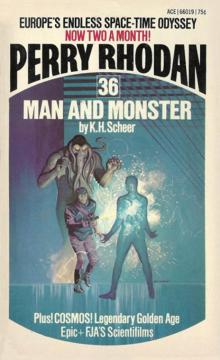 Man and Monster
Man and Monster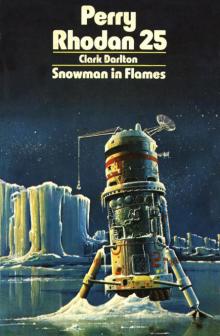 Snowman in Flames
Snowman in Flames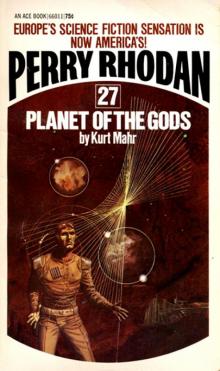 Planet of the Gods
Planet of the Gods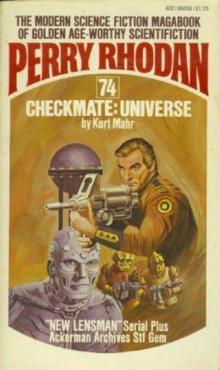 Checkmate Universe
Checkmate Universe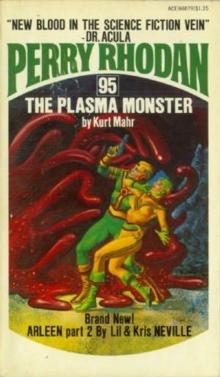 The Plasma Monster
The Plasma Monster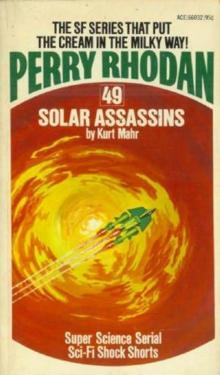 Solar Assassins
Solar Assassins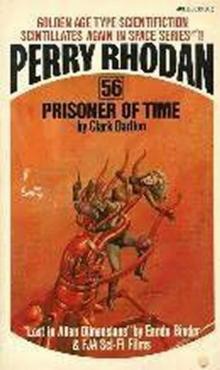 Prisoner of Time
Prisoner of Time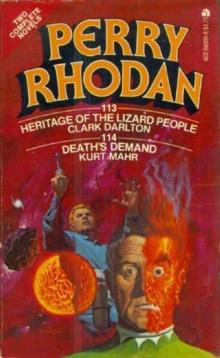 Death's Demand
Death's Demand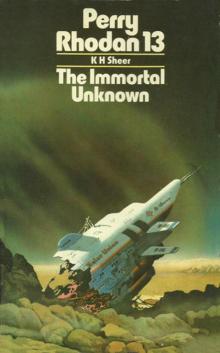 The Immortal Unknown
The Immortal Unknown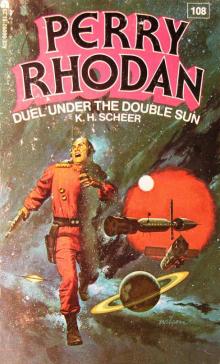 Duel Under the Double Sun
Duel Under the Double Sun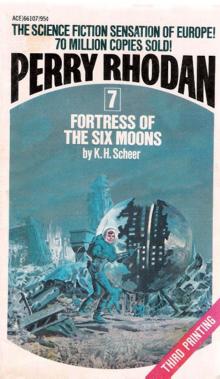 Fortress of the Six Moons
Fortress of the Six Moons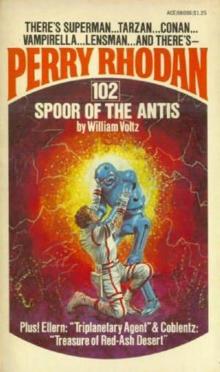 Spoor of the Antis
Spoor of the Antis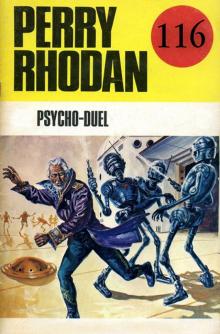 The Psycho-Duel
The Psycho-Duel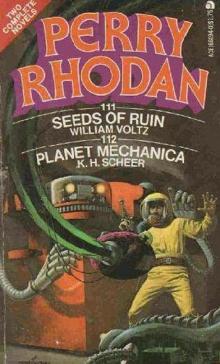 Planet Mechanica
Planet Mechanica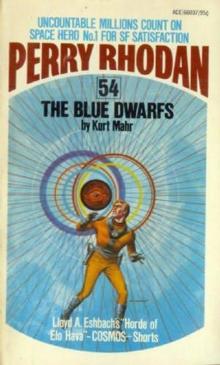 The Blue Dwarfs
The Blue Dwarfs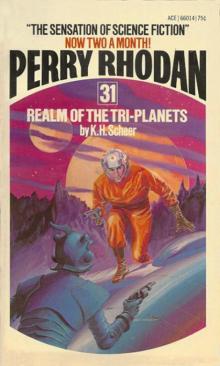 Realm of the Tri-Planets
Realm of the Tri-Planets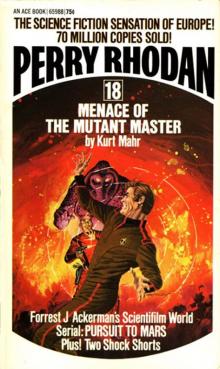 Menace of the Mutant Master
Menace of the Mutant Master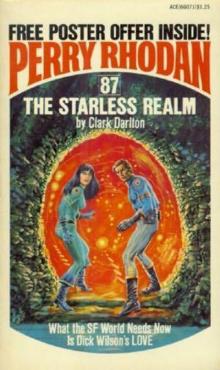 The Starless Realm
The Starless Realm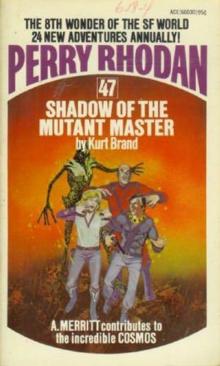 Shadow of the Mutant Master
Shadow of the Mutant Master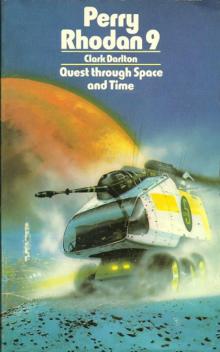 Quest Through Space And Time
Quest Through Space And Time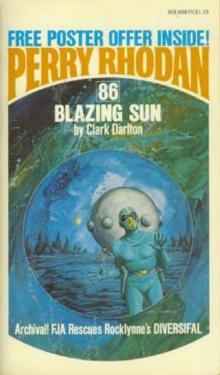 Blazing Sun
Blazing Sun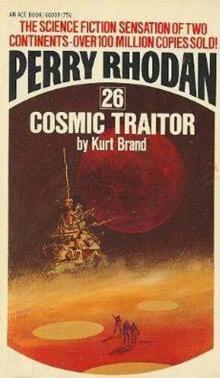 Cosmic Traitor
Cosmic Traitor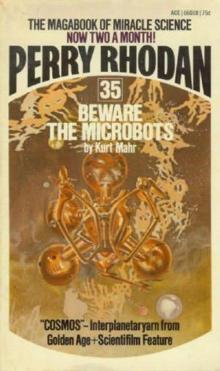 Beware the Microbots
Beware the Microbots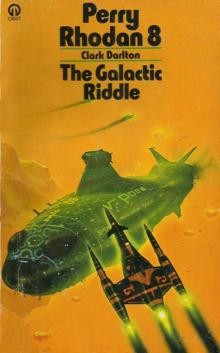 The Galactic Riddle
The Galactic Riddle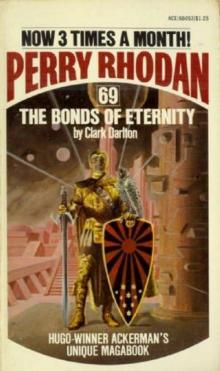 The Bonds of Eternity
The Bonds of Eternity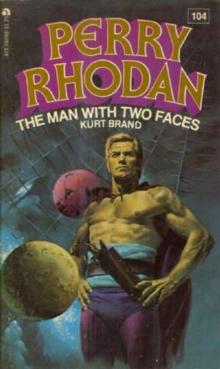 The Man With Two Faces
The Man With Two Faces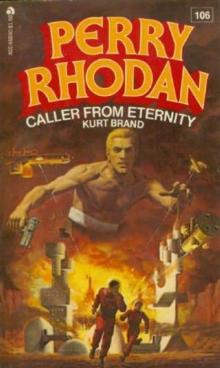 Caller from Eternity
Caller from Eternity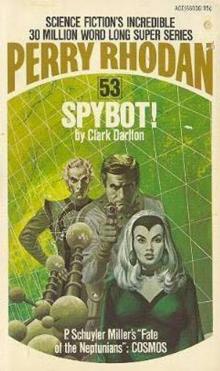 Spybot!
Spybot!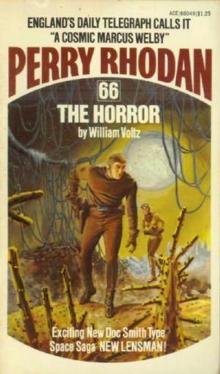 The Horror
The Horror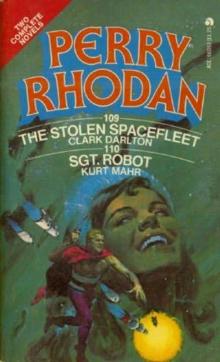 The Stolen Spacefleet
The Stolen Spacefleet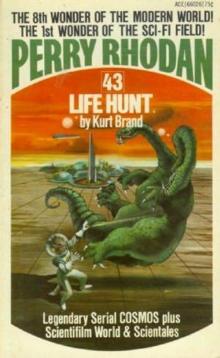 Life Hunt
Life Hunt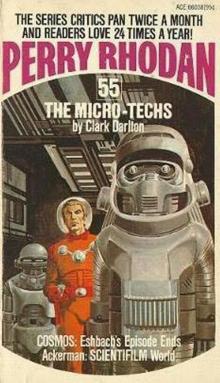 The Micro-Techs
The Micro-Techs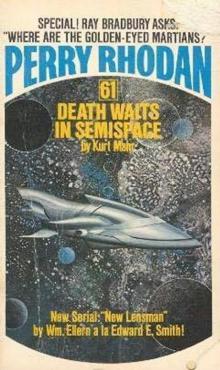 Death Waits in Semispace
Death Waits in Semispace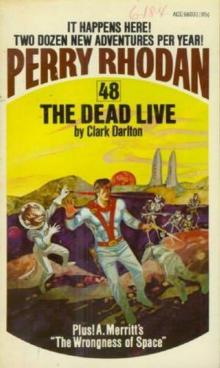 The Dead Live
The Dead Live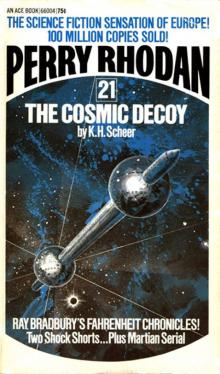 The Cosmic Decoy
The Cosmic Decoy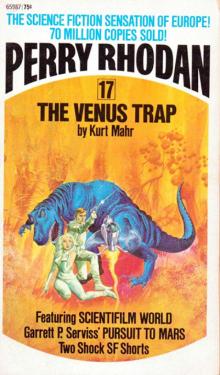 The Venus Trap
The Venus Trap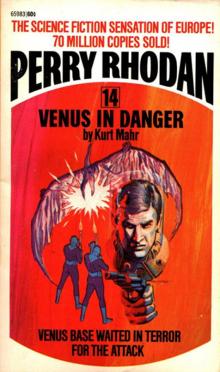 Venus in Danger
Venus in Danger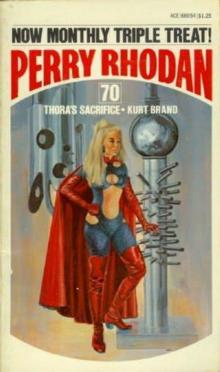 Thora's Sacrifice
Thora's Sacrifice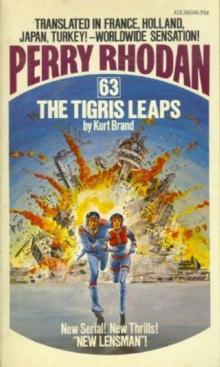 The Tigris Leaps
The Tigris Leaps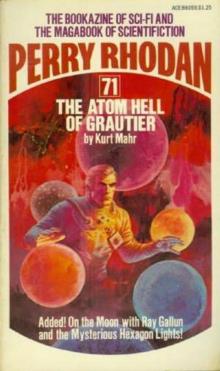 The Atom Hell of Grautier
The Atom Hell of Grautier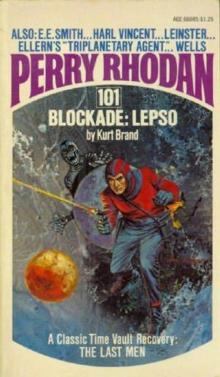 Blockade: Lepso
Blockade: Lepso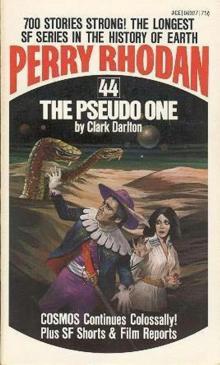 The Pseudo One
The Pseudo One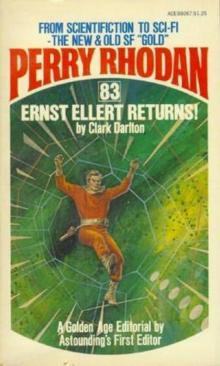 Ernst Ellert Returns
Ernst Ellert Returns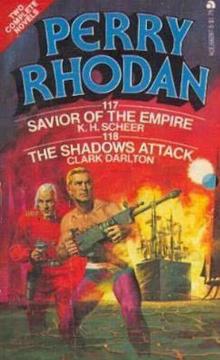 Savior Of The Empire
Savior Of The Empire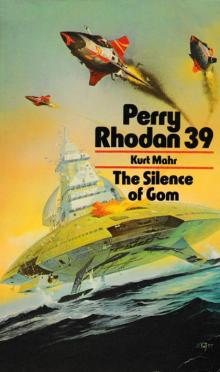 The Silence of Gom
The Silence of Gom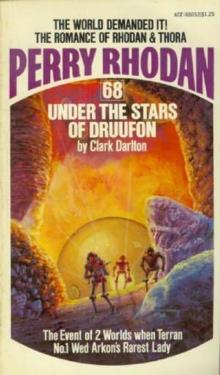 Under the Stars of Druufon
Under the Stars of Druufon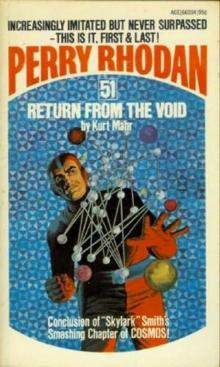 Return from The Void
Return from The Void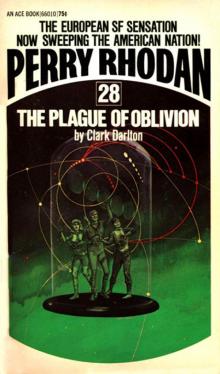 The Plague of Oblivion
The Plague of Oblivion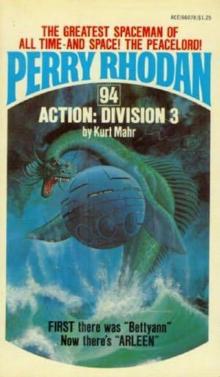 Action Division Three
Action Division Three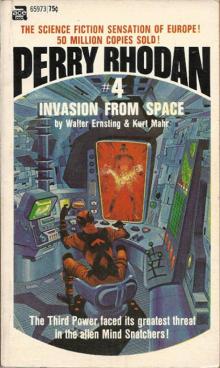 Invasion From Space
Invasion From Space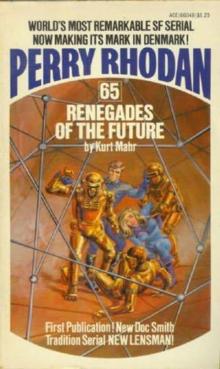 Renegades of the Future
Renegades of the Future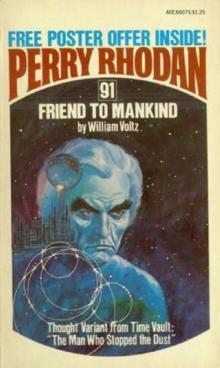 Friend to Mankind
Friend to Mankind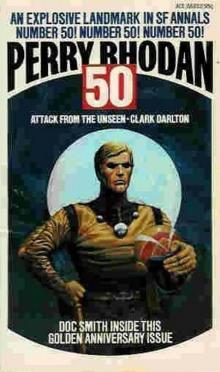 Attack from the Unseen
Attack from the Unseen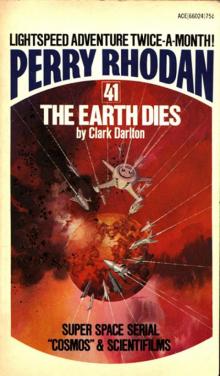 The Earth Dies
The Earth Dies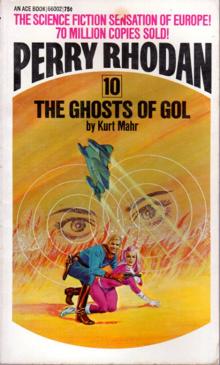 The Ghosts of Gol
The Ghosts of Gol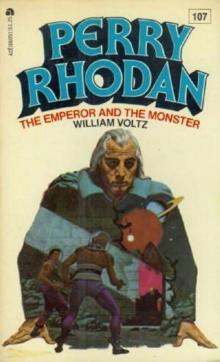 The Emperor and the Monster
The Emperor and the Monster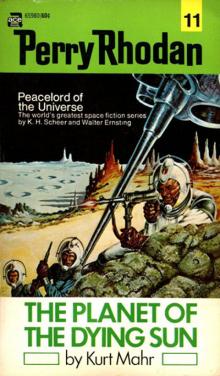 The Planet of the Dying Sun
The Planet of the Dying Sun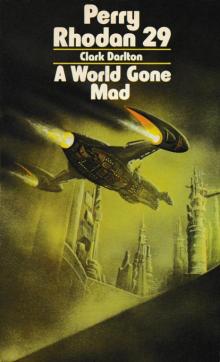 A World Gone Mad
A World Gone Mad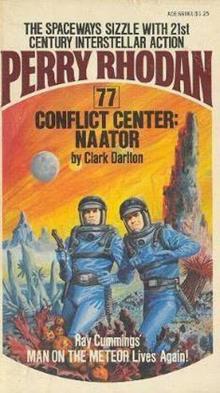 Conflict Center Naator
Conflict Center Naator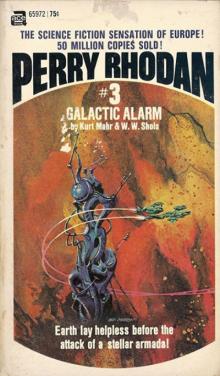 Galactic Alarm
Galactic Alarm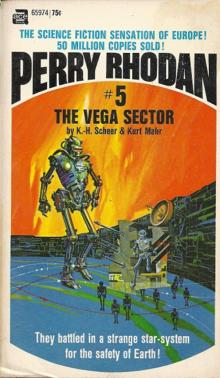 The Vega Sector
The Vega Sector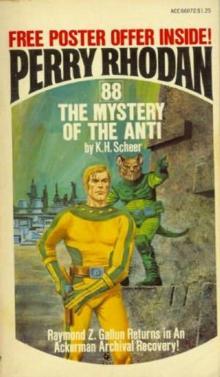 Mystery of the Anti
Mystery of the Anti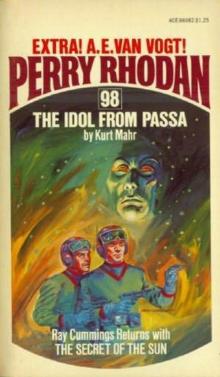 The Idol from Passa
The Idol from Passa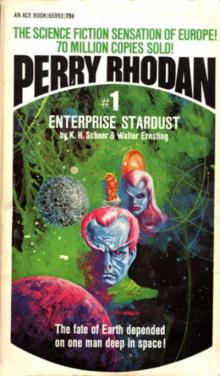 Enterprise Stardust
Enterprise Stardust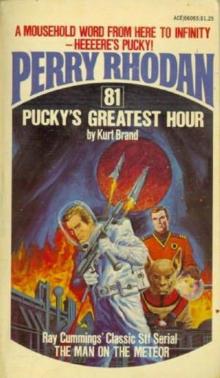 Pucky's Grestest Hour
Pucky's Grestest Hour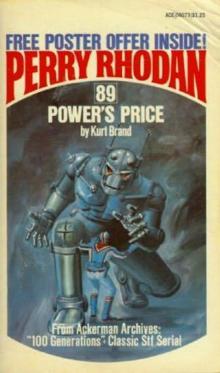 Power's Price
Power's Price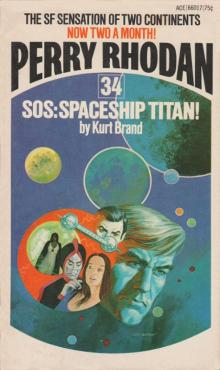 SOS Spaceship Titan
SOS Spaceship Titan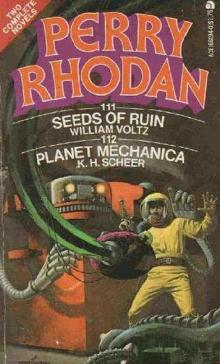 Seeds of Ruin
Seeds of Ruin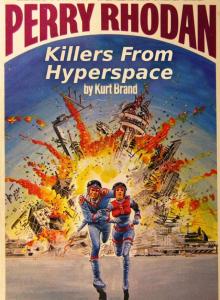 Killers From Hyperspace
Killers From Hyperspace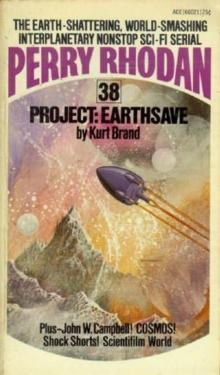 Project Earthsave
Project Earthsave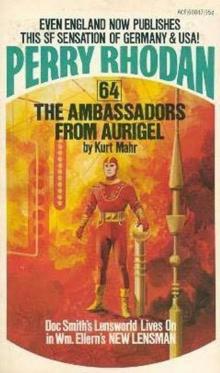 The Ambassadors from Aurigel
The Ambassadors from Aurigel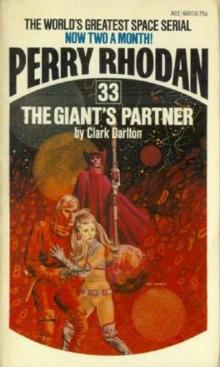 The Giant's Partner
The Giant's Partner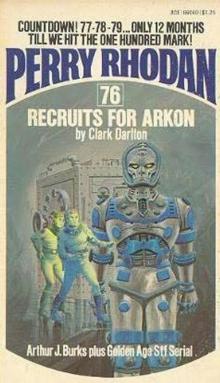 Recruits for Arkon
Recruits for Arkon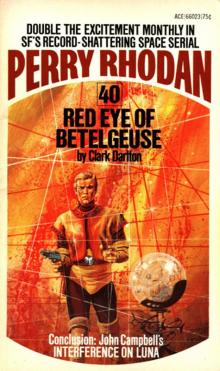 Red Eye of Betelguese
Red Eye of Betelguese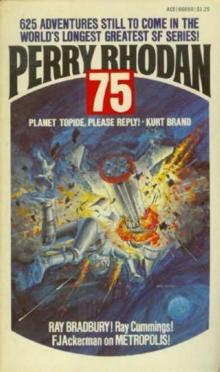 Planet Topide Please Reply
Planet Topide Please Reply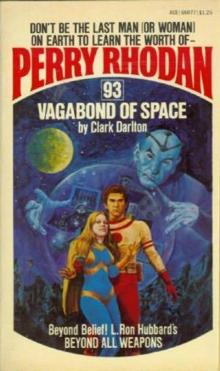 Vagabond of Space
Vagabond of Space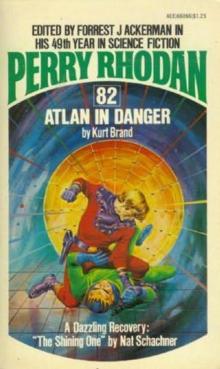 Atlan in Danger
Atlan in Danger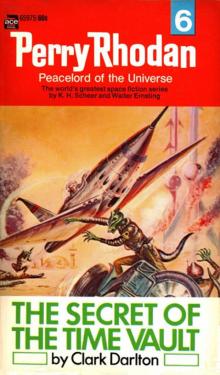 The Secret of the Time Vault
The Secret of the Time Vault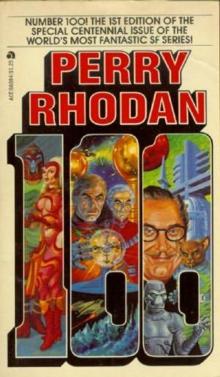 Desert of Death's Domain
Desert of Death's Domain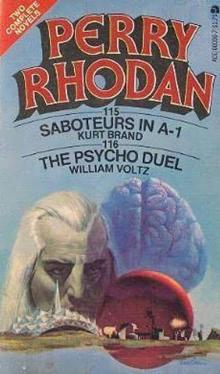 Saboteurs in A-1
Saboteurs in A-1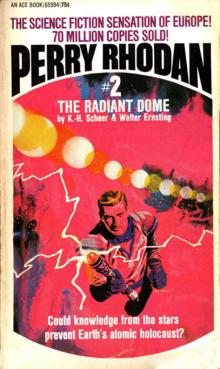 The Radiant Dome
The Radiant Dome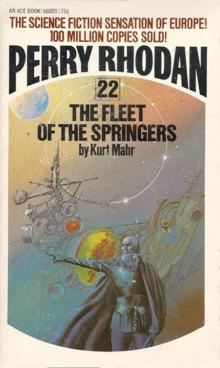 The Fleet of the Springers
The Fleet of the Springers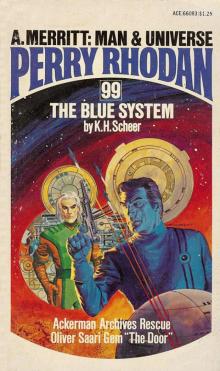 The Blue System
The Blue System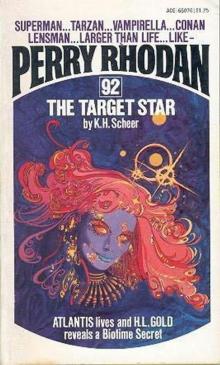 The Target Star
The Target Star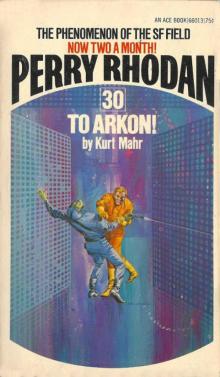 To Arkon!
To Arkon!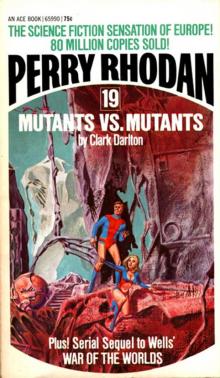 Mutants Vs Mutants
Mutants Vs Mutants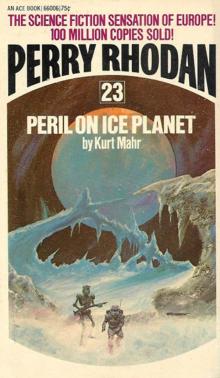 Peril on Ice Planet
Peril on Ice Planet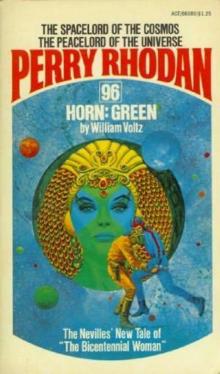 Horn: Green
Horn: Green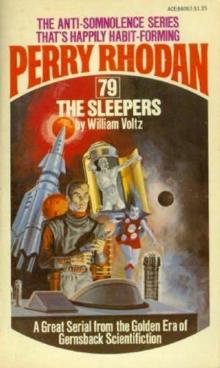 The Sleepers
The Sleepers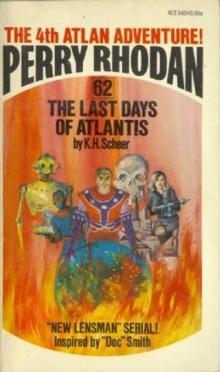 The Last Days of Atlantis
The Last Days of Atlantis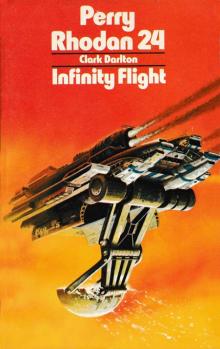 Infinity Flight
Infinity Flight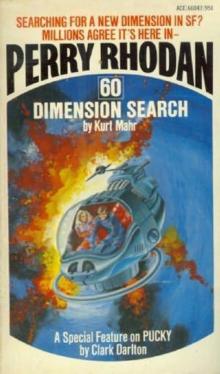 Dimension Search
Dimension Search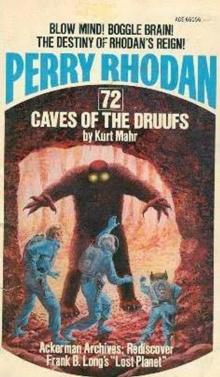 Caves of the Druufs
Caves of the Druufs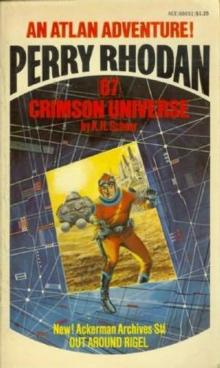 Crimson Universe
Crimson Universe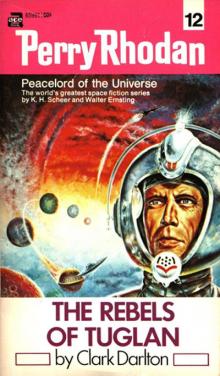 The Rebels of Tuglan
The Rebels of Tuglan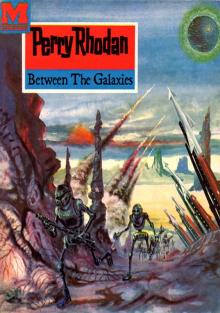 Between The Galaxies
Between The Galaxies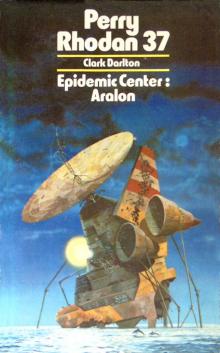 Epidemic Center Aralon
Epidemic Center Aralon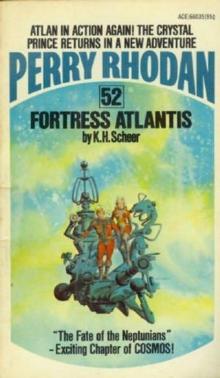 Fortress Atlantis
Fortress Atlantis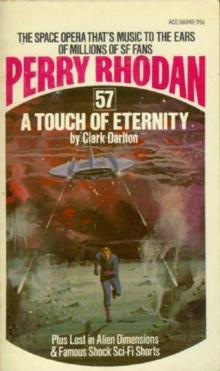 A Touch of Eternity
A Touch of Eternity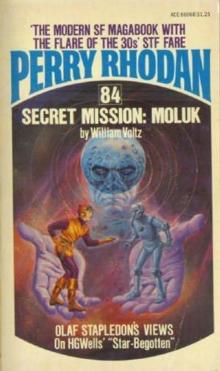 Secret Mission Moluk
Secret Mission Moluk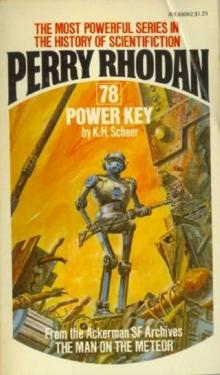 Power Key
Power Key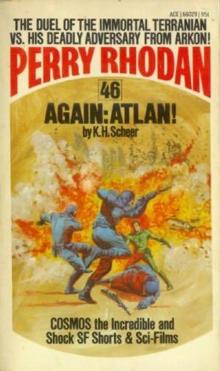 Again Atlan
Again Atlan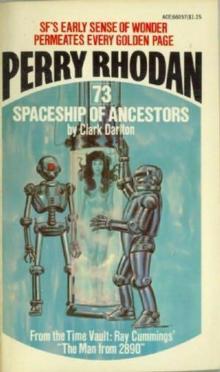 Spaceship of Ancestors
Spaceship of Ancestors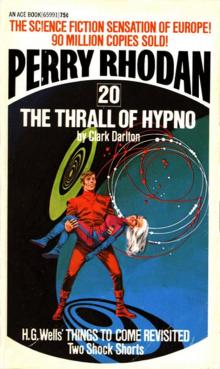 The Thrall of Hypno
The Thrall of Hypno